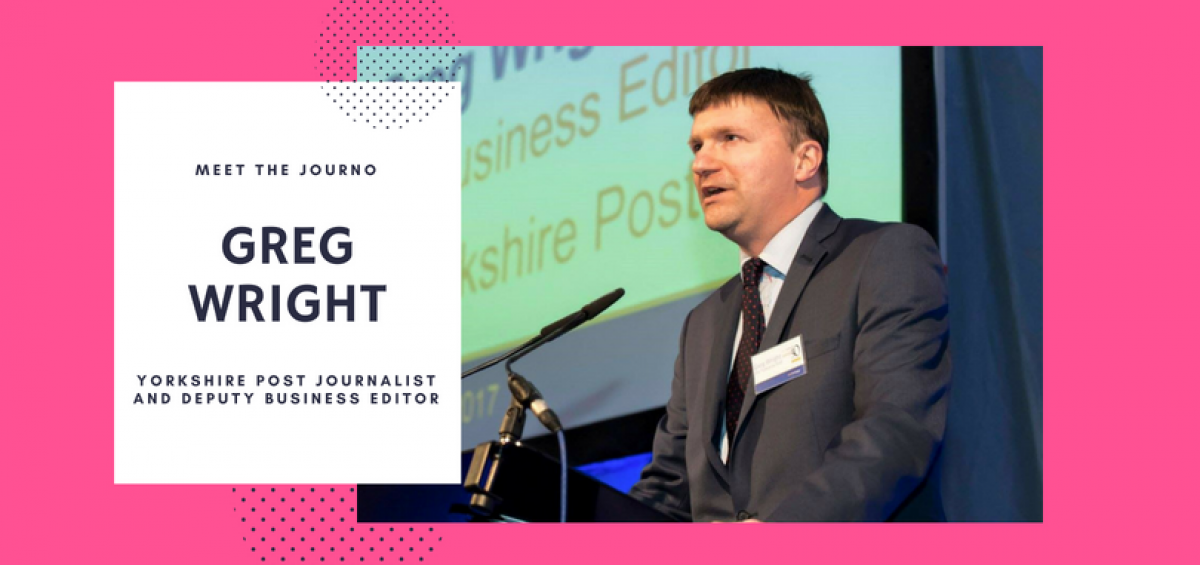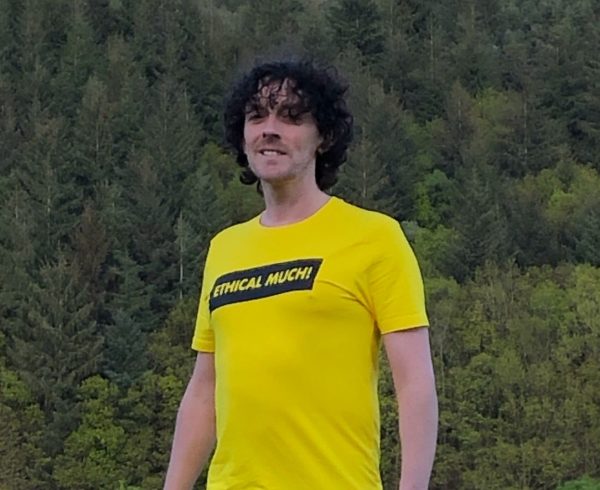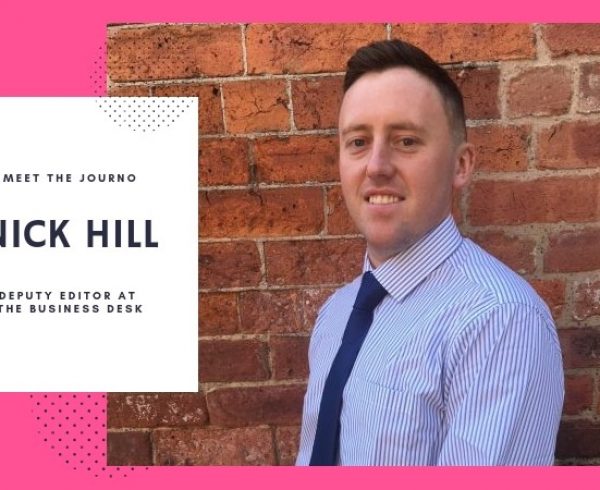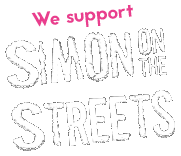Our ‘meet the journo’ feature allows you to meet the faces behind the names and get to know the journalists, editors and key influencers at some of Yorkshire’s leading publications.
We were delighted to interview award-winning Yorkshire Post journalist and deputy business editor, Greg Wright this month who talks about how he got into the industry, the best stories he has worked on over the years and the common myths about a career in journalism.
Originating from Huddersfield, just like MacComms, it was really interesting to find out how Greg worked his way up to being one of the most well-respected Yorkshire journalists. Have a read of the full interview below and follow Greg on Twitter here.
How did your career in journalism unfold?
My media career began when I started working in hospital broadcasting as a teenager in Huddersfield; people would send in requests for music and I would delve into the library, find the song and play it. One day, the news anchor didn’t turn up and I was asked to present the news show, giving me my first taste of what was to come.
Following this, I studied for a degree in history and media at Leeds Trinity University, during which time I carried out various placements in the media industry. I worked at the Huddersfield Examiner and Classic Gold Sports radio station in Bradford. Once I had graduated, I obtained a trainee reporters job in Lincolnshire and held various journalistic posts through the coming years. I joined the Yorkshire Post in 1997 where I worked on some very interesting stories, such as the Stephen Lawrence enquiry when it came to the north.
In 2002 I worked for the Press Association, returning to West Yorkshire in 2004 to become Deputy Business Editor of the Yorkshire Post. I now have 28 years’ experience in journalism behind me, 18 of which have been at the Yorkshire Post.
What inspires you the most?
Working in this industry, I am inspired to speak up for our readers and campaign about issues and injustices that matter to both individuals and businesses; particularly smaller businesses.
As a journalist, you have a responsibility to use your platform to hold those in power accountable for their actions. Given that the media industry is rather London centric, working for Yorkshire’s leading publication puts us in a great position to speak up for the region, which is extremely important to me.
What kind of stories particularly interest you?
Any stories which involve big plans and ambitions to grow interest me, I love seeing start-up thriving despite overcoming hurdles and obstacles along the way. I am always keen to report any stories which highlight injustice and misconduct as well as anything that affects the economic growth of the region and its people, such as the current train crisis.
What’s the best story you’ve ever received?
I have worked on a huge array, so I suppose it depends what you mean by ‘best’. I was one of the first journalists to write about the Calendar Girls of Rylstone WI, a story which led to a major Hollywood film. In contrast to this, I worked on the 7/7 bombings story as it unfolded due to the major connection with Leeds. I was also one of the reporting team involved in covering the Grand Depart of the Tour de France.
What are some of your goals for the future?
With the aim of continuing to write award-winning content in both print and online, I hope to find inspirational stories that have long term-narratives and affect people across the region.
What are some common myths or challenges about a career in journalism?
Although the movies can convey otherwise, in general, reporters tend to work alone and not in groups. In addition to this, the idea that journalists must be pushy and aggressive to obtain the right information for the story is a complete myth. In fact, trust is key when extracting information and a good journalist is someone who has emotional intelligence and can relate to people in a way that allows them to feel comfortable enough to trust that you will portray their story how they wish.
What do you believe makes a great story?
It is essential that a story has a powerful emotive element so that it wide-reaching and can affect a range of people. A story is powerful when the reader stops and thinks about how this affects or changes their perspective on things. All stories must be handled in a sensitive, responsible and accurate manner, having been thoroughly researched and well written.
What kind of publications do you enjoy reading?
I read all newspapers – I cannot think of anything I don’t read. I enjoy broadening my views and appreciating different perspectives and writing styles.
How do you cope with the stress of tight deadlines?
As a journalist you tend to know when it is going to get busy, so you must plan ahead and prepare for these periods. With business news, there is always a higher level of predictably, so it is important we anticipate what will happen next. Although I said journalists often work alone, team work and cooperation is key.
Outside of work, what do you like to do in your spare time?
As a lover of the arts, I am one of the longstanding friends of Shakespeare’s Globe theatre and have been for 17 years – it is a huge passion of mine.
I also love sports and the outdoors, especially running, cricket and hill-walking.
What piece of advice would you give to people wanting to pitch their business to you?
Make sure you do your homework and think carefully about where your story will fit into different segments of the paper, for example SMEs appear in our Tuesday segment.
Having a clear vision is key- you must understand exactly what you’re trying to achieve when pitching your business.
Finally, what’s your favourite thing about Yorkshire?
That it is so diverse and essentially more of a brand than a county. Yorkshire boasts so many powerful sub-regions – Hull, Leeds, York, Sheffield, Bradford, Huddersfield, and so many more, each with their own strong sense of individuality and regional identity.
Thanks again Greg for meeting us and being part of our monthly meet the journo feature. We’ll be back next month with another interview from a leading Yorkshire journalist.
Have a read of July’s interview with freelance journalist and food and travel writer, Zoe Perrett.






